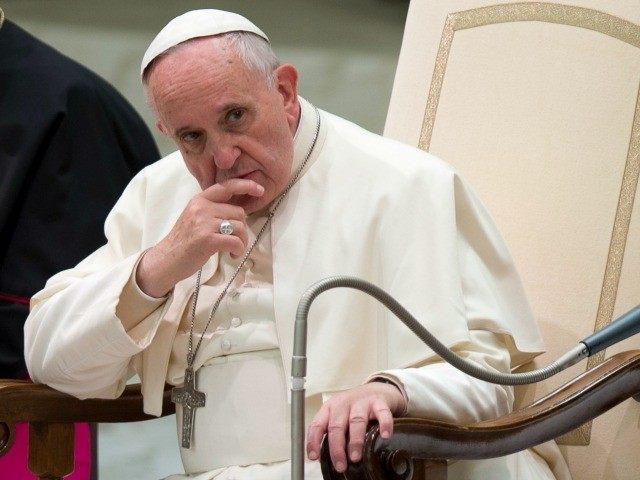In what was slated an “exchange of Christmas greetings” with clergy working in the Vatican, Pope Francis did not merely opt for a polite “Merry Christmas.” Instead, he took advantage of the occasion to urge his hearers to undertake an “examination of conscience,” offering them a lengthy catalog of what he considers the 15 “diseases” typical of those who work in the Vatican.
After observing the activities of Vatican clergy for a year-and-a-half, and with a mandate of reform, Francis got to work diagnosing what he sees as the prevalent ailments afflicting the Vatican. “I wish this meeting and the reflections that I will share with you,” Francis said, “to become, for all of us, a support and a stimulus to a real examination of conscience to prepare our hearts for Christmas.”
“Just as every human body is exposed to disease,” the Pope said, “I would like to mention some of these probable diseases of the Curia,” diseases that “weaken our service to the Lord.”
The Pope began with what he called the disease of feeling “immortal,” “immune,” or even “indispensable,” and he encouraged his hearers to healthy self-criticism. This disease, he noted, makes people feel like “masters” who are “superior to everyone else, rather than at the service of all.” He also said that this illness often “stems from the pathology of power, the complex of the Elect, and the narcissism that gazes passionately at its own image.”
Another disease, Francis said, is “Martha-ism,” taken from the biblical Martha. It is an “excessive busyness” or activism that does not allow people to take advantage of the “better part”: sitting at the feet of Jesus and listening to Him.
Francis also spoke of the illness of “mental and spiritual petrification” of those “who have a heart of stone and a ‘stiff neck.’” These sorts, Francis said, are machines, rather than “men of God.” He added that they “lose the human sensitivity necessary to make us weep with those who weep and rejoice with those who rejoice!” Such a hardening of the heart, Francis suggested, makes us “unable to unconditionally love the Father and our neighbor.”
Another disease involves excessive planning, where one “believes that by making a perfect plan, things actually make progress.” These spiritual bookkeepers, Francis said, “want to constrict and control the freedom of the Holy Spirit.” The Church, the Pope continued, cannot claim to regulate and “tame the Holy Spirit!”
Poor coordination is another disease afflicting the Vatican bureaucracy, the Pope said. When this happens, the body becomes “an orchestra that produces noise because its members do not cooperate with each other and do not live the spirit of communion and teamwork.”
Francis dubbed another disease “Spiritual Alzheimer’s,” which means the forgetfulness of salvation history and one’s “personal history with the Lord.” We see it in “those who have lost the memory of their encounter with the Lord,” he said, which leads to building walls around themselves.
The Pope continued through his long laundry list of Vatican diseases, passing through the “disease of rivalry and vainglory” to the “disease of existential schizophrenia” to the “disease of chatter, grumbling, and gossip.” Francis minced no words when describing the evils of gossip, comparing it to Satan’s sowing of discord, and calling those who practice it cowards and “cold blooded murderers” of the good reputation of their colleagues. “Brothers,” the Pope exclaimed, “beware of the terrorism of gossip!”
Other spiritual diseases highlighted by the Pope included “careerism,” “indifference towards others,” and “gloominess.” Such gruff and grim people, Francis warned, “treat others—especially those deemed inferior—with stiffness, harshness, and arrogance.”
Pope Francis ended his stinging address with his final three Vatican diseases: the “disease of hoarding,” the “disease of cliques,” and the “disease of worldly profit.”
“Brothers,” the Pope said, “these diseases and temptations are, of course, a danger to every Christian and every curia, community, congregation, parish and church movement, and can affect both individuals and communities.”
It is “only the Holy Spirit,” the Pope concluded, “who can heal every disease.” It is the Holy Spirit who “sustains every sincere effort of purification and any goodwill to conversion.”
Follow Thomas D. Williams on Twitter @tdwilliamsrome.

COMMENTS
Please let us know if you're having issues with commenting.